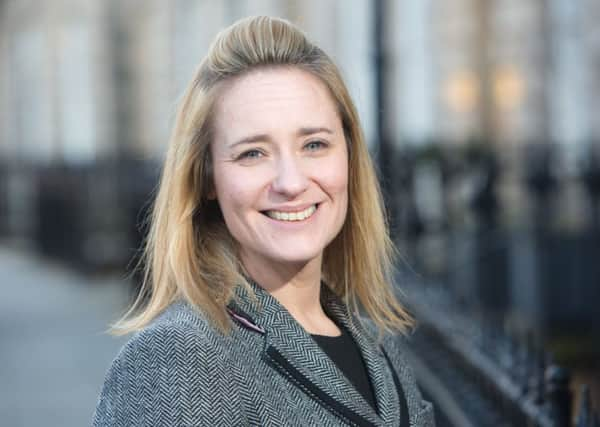Don’t blow hot and cold over wind farms – Susan Law


However, it’s stating the obvious to say that the whole is made up of the sum of its parts and individual nations will need to undertake radical changes in policy to meet ambitious targets, many of which are now set out in law and need to be navigated carefully.
As a lawyer working on renewable energy developments for longer than I’d care to mention, I’ve seen the journey Scotland has been on to become, in policy terms, a leading nation on tackling climate change. Over the last number of years, we’ve introduced reams of new laws and policy, including the Climate Change Act, the Energy Strategy, electric vehicles targets and policy statements on specific sources of renewable energy such as wind farms.
Advertisement
Hide AdAdvertisement
Hide AdThere is also no doubt that as a nation we’ve a more progressive approach to the need for radical social changes to combat climate change. However, in my experience, there is a mismatch between our high-level laws, public attitudes to climate change action as a whole and what actually happens on the ground. Over recent years, you’d be hard pushed not to see negative articles in local papers about wind farms on a weekly basis.
The truth is, despite the fact that there is almost universal acceptance of the need to move to a completely renewables-based electricity supply, it’s becoming increasingly difficult for organisations to invest in Scotland’s most successful renewable technology: onshore wind.
Some of this is due to the changing cost structures required to build wind farms; they were, and remain, expensive to build. It costs developers a huge amount of money upfront, and it can take many years before they ever see any return, with a risk of such a high investment with no guarantee of obtaining all the permissions required. Previously, the UK Government provided subsidies for onshore wind, but that has now ceased.
Developers also face a myriad of other costs and resource pressures through local planning policies, which often do not match the ambitions set out in national policy. Decisions about key investments are often made with local politics in mind, resulting in sound projects that have required a huge amount of investment being rejected and subsequently granted on appeal.
The most recent Planning Act passed in the Scottish Parliament has placed more obligations on developers. On top of that the cost and effort involved in securing a grid connection can be eye-watering. The costs all add up.
The facts about onshore wind are clear. The Scottish Government’s Onshore Wind Policy Statement says the sector supports an estimated 7,500 jobs in Scotland, 58 per cent of the total for onshore wind across the UK, and generated more than £3 billion in turnover in 2015, whilst being the lowest cost investment here in Scotland.
As of November 2017, more than £12 million had been paid out to communities over the preceding 12-month period through the requirement for developers to invest in local areas through community benefit. A variety of important and beneficial projects have been supported across the country. These projects can make a real difference to communities, and in many cases can be transformational.
In other words, in Scotland, we’re good at wind farms.
The simple truth is if we want to successfully decarbonise and meet our climate change ambitions, we’re going to have to build more wind farms. That means that we’re going to have to start walking the walk when it comes to working together to make this a reality. Developers need to improve their engagement with local communities, but the decision-making at a local level needs to be more consistent and acknowledge the importance of local projects to the overall national picture.
Advertisement
Hide AdAdvertisement
Hide AdWe have a great story to tell about what onshore wind has achieved in Scotland in terms of our journey to net zero so far, but we need to win over hearts and minds to take us the rest of the way.
Susan Law is a partner in the rural services team at Lindsays